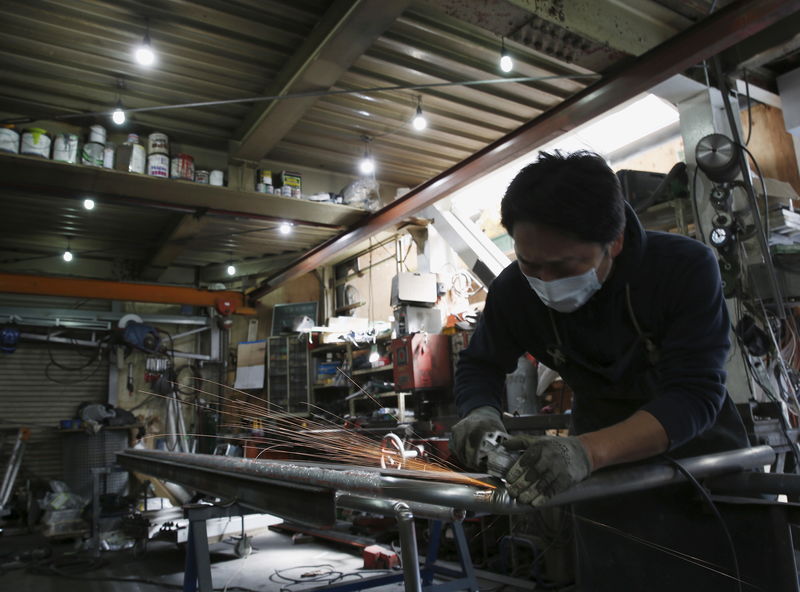TOKYO (Reuters) - Japanese manufacturing activity shrank for a fourth straight month in August as export orders fell at a sharper pace, a preliminary business survey showed on Thursday.
But services sector activity expanded at the fastest pace in nearly two years, suggesting resilient domestic demand is continuing to offset some of the strong external pressures on the economy.
The Jibun Bank Flash Japan Manufacturing Purchasing Managers' Index (PMI) rose to a seasonally adjusted 49.5 from a final 49.4 in the previous month, but stayed below the 50.0 threshold that separates contraction from expansion for a fourth month.
Factory output and total new orders contracted again, though at a slightly more moderate pace than in July.
Other key activity gauges in the PMI report offered a mixed picture. Employment expanded, while the backlog of work index rose to an eight-month high, though it remained in contraction.
A separate survey showed Japanese service activity expanded. That, in turn, helped lift a composite PMI index that includes both manufacturing and services.
The Jibun Bank Flash Japan Services PMI climbed to 53.4 in August, from a final 51.8 in July on a seasonally adjusted basis, and the highest level since October 2017.
"Solid growth seen in GDP so far this year could stretch into the third quarter, providing a timely boost before the fourth quarter, which is likely to be adversely impacted by the consequences of a sales tax hike," said Joe Hayes, economist at IHS Markit, which compiles the survey.
The growth seen in the services sector was in line with GDP figures released this month that showed the world's third-largest economy grew an annualized 1.8% in the second quarter largely thanks to robust household consumption and business investment.
If sustained, solid growth in services could help offset external pressure on the export-reliant economy, which has been hit by weak global demand and the U.S.-China trade war.
Japan's exports slipped for an eight month in July, dragged down by China-bound shipments of car parts and semiconductor production equipment,
Separately, Japanese manufacturers' confidence turned negative for the first time since April 2013, the Reuters Tankan survey showed.
The Jibun Bank Flash Japan Composite PMI advanced to 51.7 from 50.6 the previous month.
